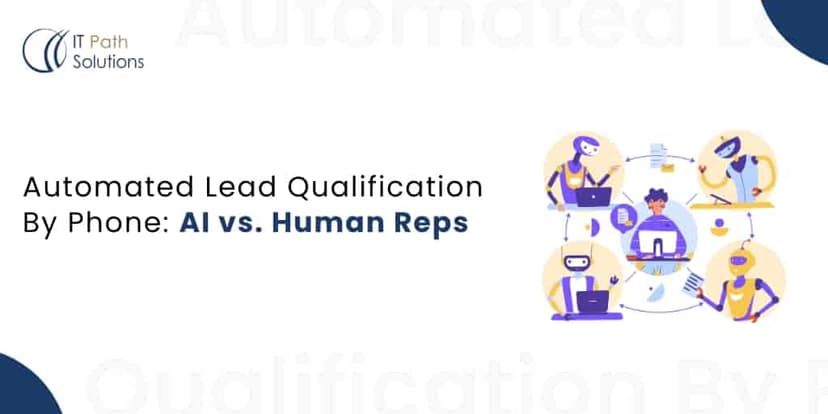How AI Can Improve Customer Experience For The E-Commerce Industry
Keyur Patel
September 12, 2025
5 min
AI Is Bringing Change to the E-commerce Industry
AI is transforming the e-commerce industry in several ways. AI technologies such as machine learning, natural language processing, computer vision and predictive analytics are being used to improve various aspects of e-commerce such as:
Personalized shopping experiences
AI algorithms can analyze customer data to offer personalized product recommendations, pricing, and promotions.
Streamlined Operations
AI can automate various processes such as order fulfillment, inventory management, and customer service to improve efficiency and reduce costs.
Fraud Detection
AI algorithms can quickly detect fraudulent activity, reducing the risks for merchants and increasing security for customers.
Customer Service
AI chatbots are being used to provide quick and efficient customer service, reducing response times and freeing up human customer service agents for more complex inquiries.
Overall, AI is driving innovation and efficiency in the e-commerce industry and improving the overall shopping experience for customers.
Benefits of Using AI for E-commerce Websites
There are several benefits of using AI in an e-commerce website, including:
Personalization
AI algorithms can analyze customer data and behavior to provide personalized product recommendations, pricing, and promotions, leading to increased customer satisfaction and loyalty.
Improved Customer Service
AI-powered chatbots can provide 24/7 customer service, quickly answering common questions and freeing up human customer service agents for more complex inquiries.

AI can offer personalized customer experience
Increased Efficiency
AI can automate tasks such as order fulfillment, inventory management, and fraud detection, leading to faster and more accurate processes.
Better Data Insights
AI can help e-commerce companies gather and analyze large amounts of data to gain insights into customer behavior and preferences, improving marketing and sales strategies.
Competitive Advantage
By embracing AI, e-commerce companies can gain a competitive advantage over those that are not, improving their overall competitiveness and market position.
Overall, AI is a valuable tool for e-commerce companies looking to improve their operations and enhance the customer experience.
AI Use Cases in E-commerce
There are several AI use cases in e-commerce, including:
Personalized Product Recommendations
AI algorithms can analyze customer data, such as purchase history, browsing behavior, and demographic information, to provide personalized product recommendations to each customer.
Chatbots for Customer Service
AI chatbots can provide quick and efficient customer service, answering common questions and helping customers find the products they need.
Fraud Detection
AI algorithms can quickly detect fraudulent activity, such as suspicious transactions or IP addresses, reducing the risks for merchants and increasing security for customers.
Predictive Analytics
AI can analyze customer data and behavior to predict future buying patterns and preferences, helping e-commerce companies plan inventory and make better business decisions.
Image Recognition
AI-powered image recognition technology can be used in e-commerce to provide product details, such as size and color, by analyzing images of products.
Voice-Enabled Shopping
AI-powered voice assistants such as Amazon Alexa or Google Assistant can be used for voice-enabled shopping, allowing customers to search for products and make purchases using voice commands.
Overall, AI is being used in a variety of ways to improve the e-commerce experience and drive growth for e-commerce companies.
How to Implement Artificial Intelligence Into E-commerce
Implementing AI into e-commerce can be done in the following steps:
Define Objectives
Clearly define the goals and objectives for using AI in e-commerce, such as improving customer service, personalizing the shopping experience, or streamlining operations.
Gather Data
Collect and store data about customer behavior, preferences, and transactions. This data will be used to train AI algorithms and improve decision-making processes.
Choose AI Tools
Select the right AI tools and technologies that fit the specific needs and goals of the e-commerce business. There are many AI-powered solutions available, such as chatbots, predictive analytics, and computer vision.
Implement and Integrate
Implement and integrate the chosen AI tools into the e-commerce website and operations. This may involve customizing or building new systems and processes.
Train and Optimize
Train the AI algorithms with the gathered data and continually optimize and fine-tune them for better results.
Monitor and Evaluate
Regularly monitor and evaluate the performance of the AI systems to identify areas for improvement and ensure they are meeting business goals.
Conclusion
AI has the potential to significantly improve customer experience in the e-commerce industry. AI-powered chatbots and virtual assistants can also enhance the customer service experience by providing quick and accurate responses to customer inquiries, thereby increasing customer satisfaction and loyalty. AI has the potential to transform the e-commerce industry, providing businesses with a competitive edge in a rapidly evolving digital landscape. By leveraging the power of AI, e-commerce businesses can better understand their customers’ needs and preferences, deliver personalized experiences, and ultimately drive growth and success. If you run online E-commerce websites and want to integrate AI features to improve the customer experience for your e-commerce store, then hire expert app developers from us that will assist turn your AI integration ideas into reality.

Keyur Patel
Co-Founder
Keyur Patel is the director at IT Path Solutions, where he helps businesses develop scalable applications. With his extensive experience and visionary approach, he leads the team to create futuristic solutions. Keyur Patel has exceptional leadership skills and technical expertise in Node.js, .Net, React.js, AI/ML, and PHP frameworks. His dedication to driving digital transformation makes him an invaluable asset to the company.
Related Blog Posts

Why AI Integration Services are No Longer Optional for Modern Enterprises in 2026
Focus keyword: Al integration services Search intent: Informational/Commercial companies exploring automation and Al solutions. Keywords: Artificial Intelligence Solutions Ai for Business Automation Machine Learning Integration Ai Development Company Digital Transformation with Ai It is Monday morning, December 2025. CEO A (The Traditionalist) walks into his office. His inbox is overflowing with 200 unread emails. His… Why AI Integration Services are No Longer Optional for Modern Enterprises in 2026

Complete Guide to PHP Versions: When Should You Upgrade to the Latest Version?
Running a website on outdated PHP versions is like driving a car without insurance. Everything seems fine until something goes wrong. With over 77% of websites using PHP, understanding PHP version support timelines isn’t just technical jargon; it’s critical for your business security, performance, and user experience. Current PHP Versions and Support Status As of… Complete Guide to PHP Versions: When Should You Upgrade to the Latest Version?

Automated Lead Qualification By Phone: AI vs. Human Reps
Imagine losing half of your potential customers merely because no one answered the phone fast enough. It is a critical concern many businesses face in 2025, where competition is relentless and patience is almost nil. Phone-based lead qualification remains the lifeline for companies across healthcare, finance, real estate, and SaaS industry verticals. Every missed or… Automated Lead Qualification By Phone: AI vs. Human Reps
